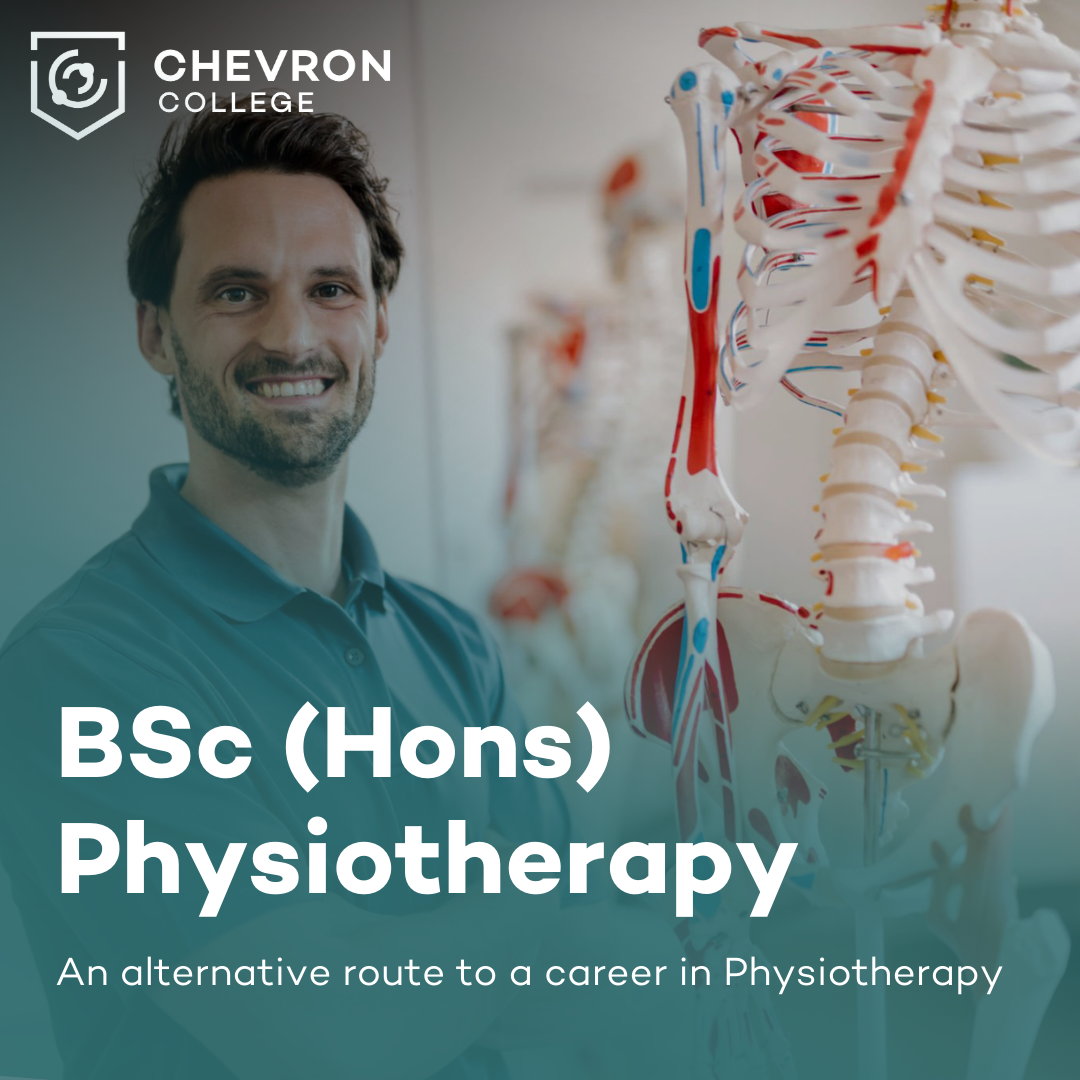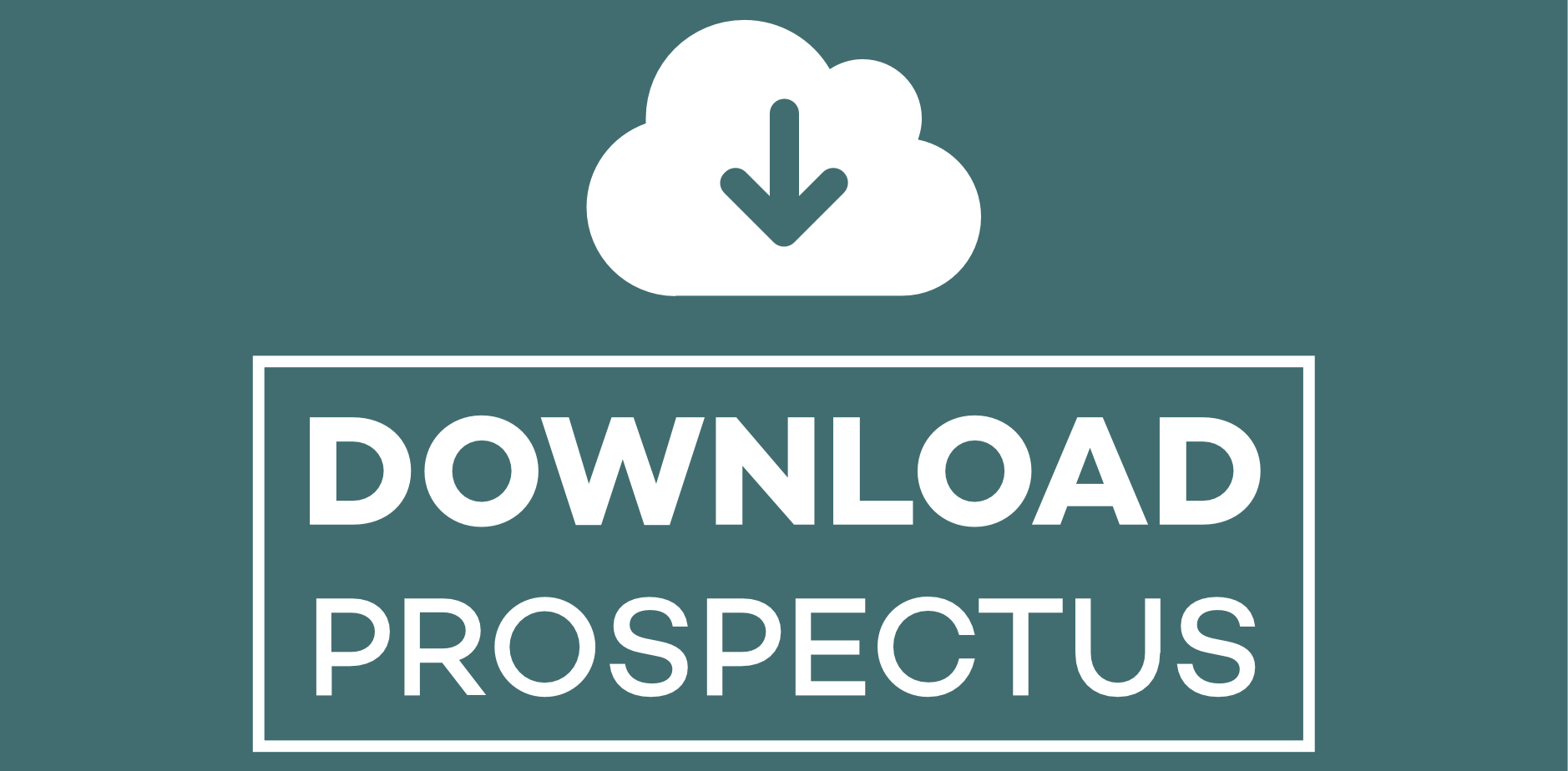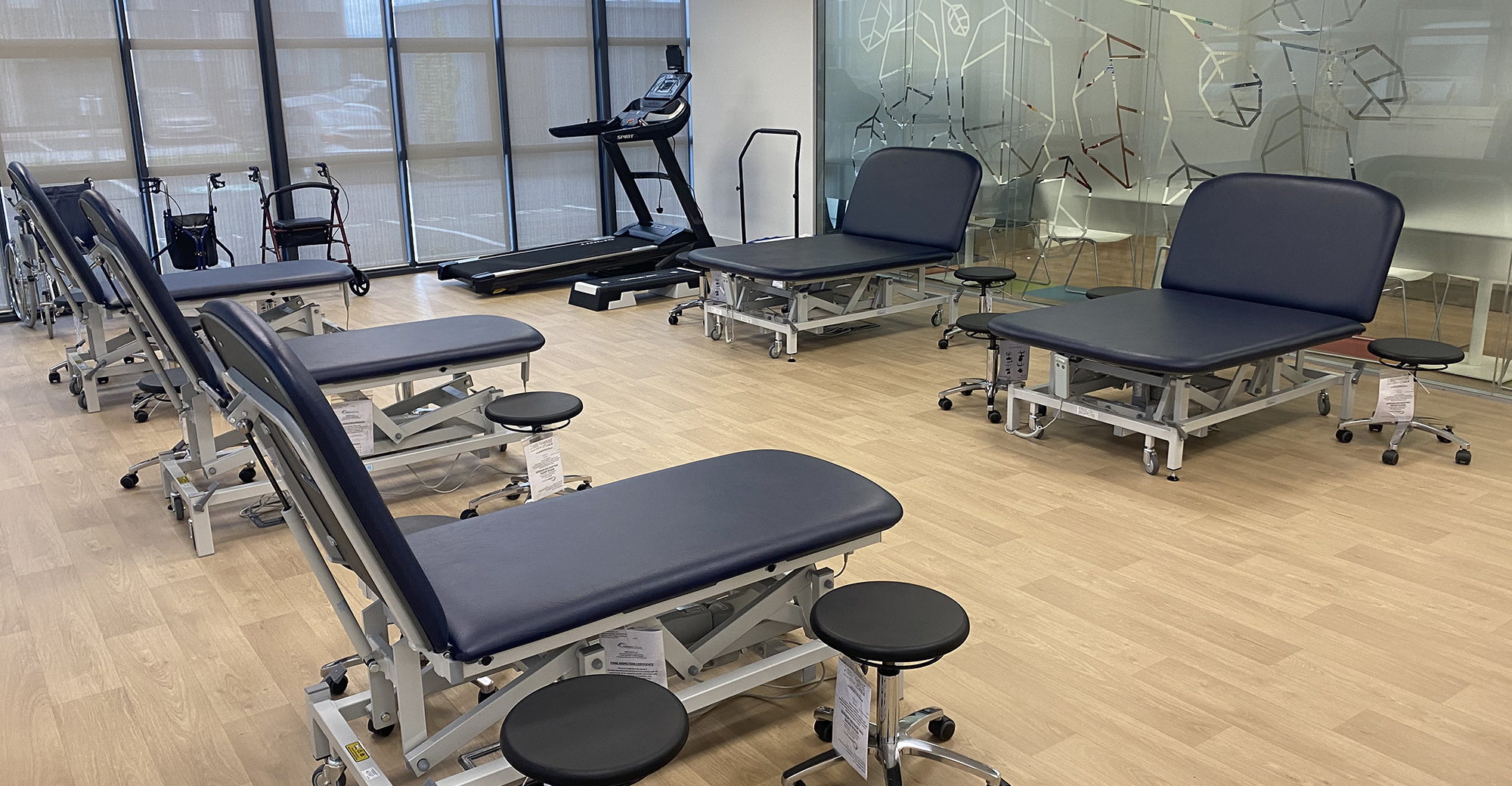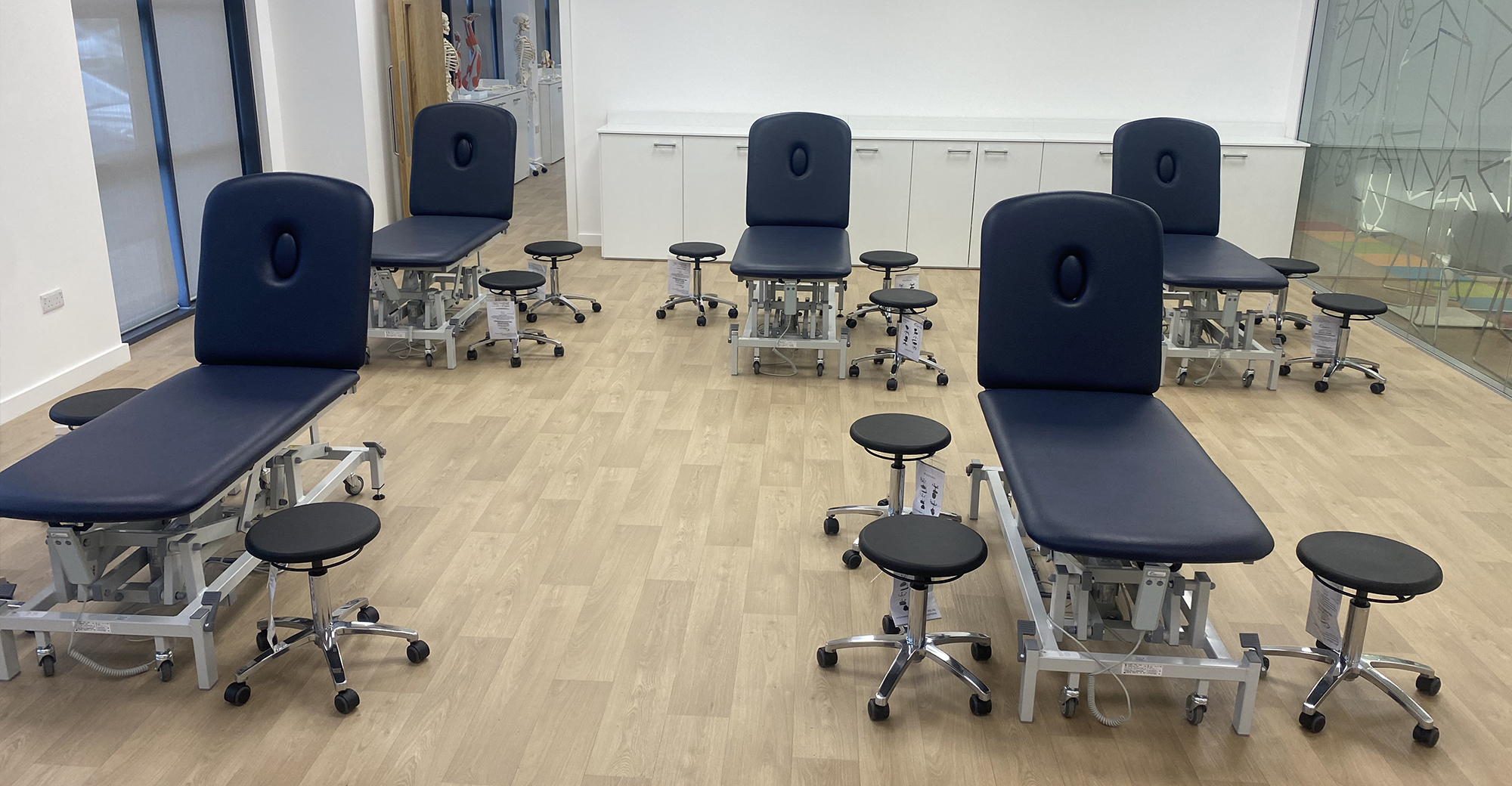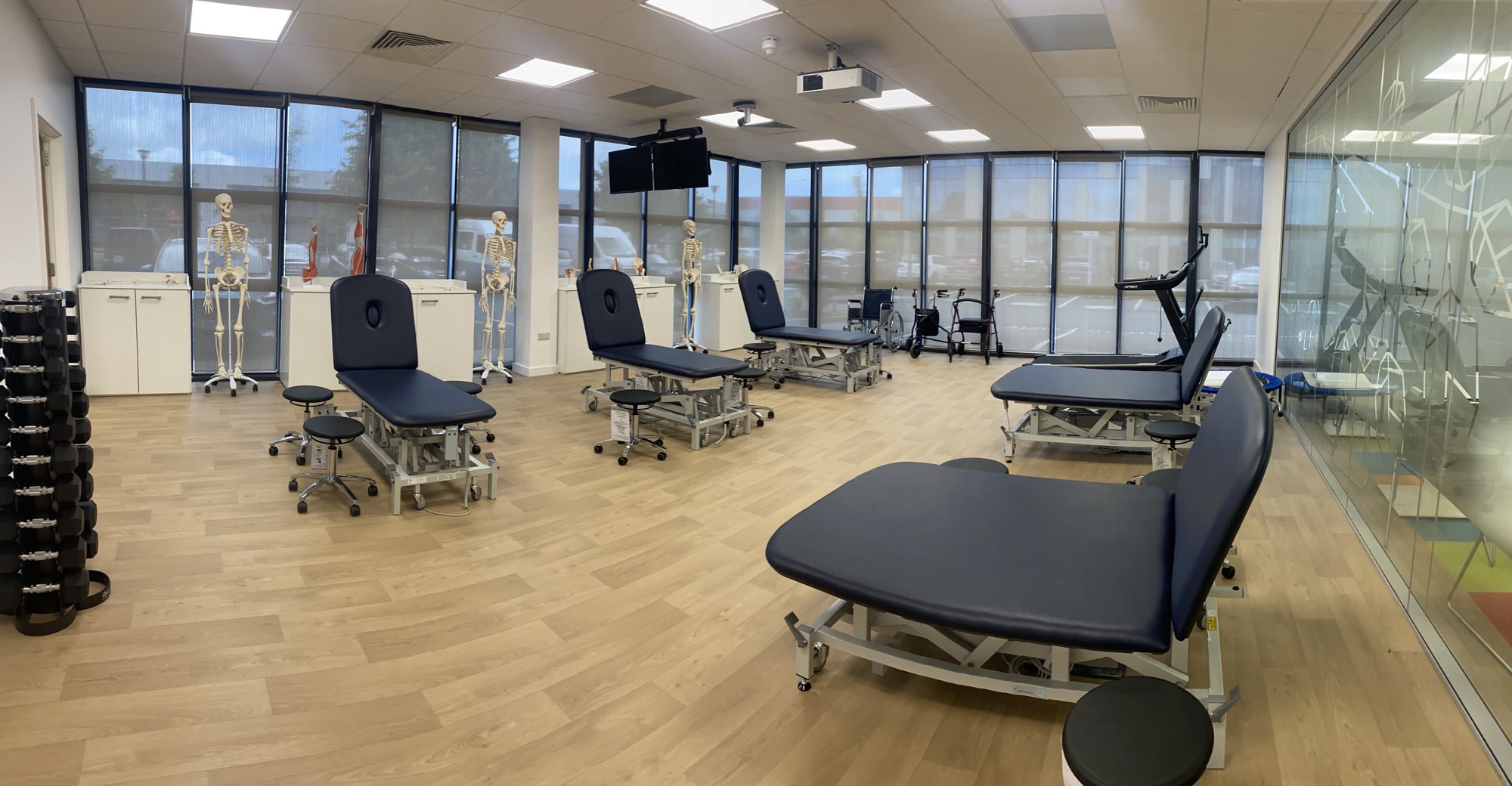Key Facts
BSc (Hons) in Physiotherapy (Blended Learning)
Chevron College is currently accepting enrolments for a 3-year Undergraduate Bachelor of Science (BSc.) Physiotherapy Degree which is being run in partnership with the University of East London.
Chevron College have a vision to educate highly-skilled Physiotherapists who will consistently provide critically-appraised, evidence-informed, and compassionate care to patients in diverse health environments.
Physiotherapists treat patients of all ages, helping them to maximise functional movement caused by accidents, illness and disability. Their expertise helps improve mobility, independence and quality of life. You’ll learn how to communicate professionally and treat patients safely and effectively. You will gain hands-on experience through clinical placements in the HSE & NHS and private sector, to prepare you for your physiotherapy career.
The programme will provide a high standard of evidence-based teaching to maximise clinical reasoning and critical thinking to prepare student for their physiotherapy career.
Physiotherapy is a professional healthcare course, meaning that all students must commit to actively participating in working with all peers in class. This will involve the touch and exposure of relevant body parts in a professional and respectful manner regardless of beliefs.
“On graduation learners can apply directly to HCPC for registration in the UK. As the delivery of the award is by a team of lecturers outside of the UK, learners will apply to HCPC using the international applicant route. Once registered, HCPC registered graduates can then apply to CORU for registration”
How will this programme be delivered?
This blended programme is delivered over 3 academic years.
In year one of the programme learners will be required to be onsite for practical training for at least two days per week during term time. Practical days will be mainly scheduled on Tuesdays, Wednesdays, and some Fridays in year one. Practical days will be delivered in our custom-designed physiotherapy training rooms in Blanchardstown, Dublin. A study space is available between classes.
In addition, learners will attend some of their classes online. Online classes will be mainly scheduled on Mondays, Thursdays, and some Fridays in year one.
Learners are advised that the schedule of live classes and practical training will vary from year to year. Placement weeks will have full-time hours. In year one, there will be four weeks of placement from 16th March to 10th April 2026.
Course Modules
Year 1
| Module | Credits |
| Anatomy and Assessment Skills 1 | 20 |
| Introduction to Physiology | 20 |
| Anatomy, Assessment and Treatment Skills – Upper Limb | 20 |
| Physiotherapy Clinical Skills | 20 |
| Professional Practice (Mental Wealth) | 20 |
| Introduction to Physiology 2 | 20 |
| Practice Based Learning 1 | 20 |
Year 2
| Module | Credits |
| Cardiovascular Physiotherapy | 20 |
| Neurological Physiotherapy | 20 |
| Research Methods | 20 |
| Physiotherapy Rehabilitation | 20 |
| Practice Based Learning 2 | 20 |
| Musculoskeletal Physiotherapy | 20 |
Year 3
| Module | Credits |
| Practice Based Learning 3 (Elective) | 20 |
| Complex Practice 1 | 20 |
| Practice Based Learning 4 | 20 |
| Research Governance and Leadership | 20 |
| Complex Practice 2 | 20 |
| Neuromusculoskeletal Assessment and Trauma | 20 |
| Practice Based Learning 5 | 20 |
Course Summary
Each year, students will spend approximately 300 hours of timetabled learning and teaching activities. These will include lectures, workshops, seminars and individual and group tutorials. Contact hours may vary depending on each module. An approximate breakdown of hours is:
- Year 1: scheduled teaching – 360 hours; guided independent study – 840 hours. 150 hours of clinical practice in term 2.
- Year 2: scheduled teaching – 360 hours; guided independent study – 840 hours. 300 hours of clinical practice across the year.
- Year 3: scheduled teaching – 120 hours; guided independent study – 270 hours. (Please note, terms 1 and 2 in level 6 are shortened to accommodate clinical placements). 600 hours of clinical practice across the year.
Course Details
Entry Requirements
- Irish Leaving Certificate: specific grades required* approximately 450 CAO points
- UK: 120 UCAS points or A level – BBB: specific grades required*
- Equivalent International qualifications*
- Mature learner route*
Placement takes place across the programme; each placement week is 39 hours on site, Monday to Friday. The below table outlines the placement requirement across the programme.
| Year of programme | Placement requirements | Total number of weeks placement |
| Year 1 | 1 block of 4 weeks | 4 weeks |
| Year 2 | 2 blocks of 5 weeks each | 10 weeks |
| Year 3 | 2 blocks of 6 weeks each | 12 weeks |
- Basic Grade Physiotherapist €39,993 – €58,483
- Senior Physiotherapist €60,999 – €71,993
- Clinical Specialist Physiotherapist €73,498 – €85,354
- Managerial Roles €80,796 – €95,337+
Once professionally registers, graduates will be able to work in a diverse range of environments, including hospitals and community settings. Some common employment opportunities for physiotherapy graduates include
Teaching and learning strategy
All students entering this degree programme complete an intensive induction process. This induction prepares the novice learner to transition successfully to study in an online Higher Education environment. Our tailored induction process is comprised of a 1:1 induction meeting and skills session with their personal Studies Advisor. This 1:1 induction session will teach the student how to access our virtual learning environment and how to use zoom. These sessions are tailored to meet the needs of individual students. At Chevron College we are aware that IT skills vary between students. These sessions are therefore designed to meet each student at their own level. By the end of this 1:1 session each student will have learned how to access our VLE and online zoom meetings. All students will therefore have developed the skills to participate in the intensive 4 day class induction sessions.
The four induction sessions for the class group take place during the month prior to course commencement. At these sessions, students will be introduced to their course tutors and their class community. These sessions will teach students the skills required to succeed in an online Higher Education environment where continuous active engagement with resources and formative assessments is required. Students will learn academic writing and presentation skills. They will learn critical reading writing and thinking skills and they will learn how to conduct literature searches. These sessions teach the students the foundational thinking and IT skills required to participate in our blended learning degree programme.
Each semester runs for 12 weeks; students study 2 modules each semester. Students should allocate a minimum of 10 hours per week for each module.The weekly module content is released on the Virtual Learning Environment on a Monday morning at 6am. Each week there is a recorded lecture, a workshop/webinar and an Educational Action to complete for each module.
The lectures function to provide a content overview of the week’s learning and establish the expected aims and learning outcomes as well as the criteria for measuring their achievement. During the lecture key concepts, ideas and theories are introduced and contextualised. This reinforces the relevance of the material for the students with the use of examples
The workshops and webinars function to support students to investigate, question and develop critical thinking skills about the weekly topics. Students are supported to take part in active discovery within their class community. This supports students to develop their Higher Order Thinking Skills and to apply these ways of thinking and practicing to Case Studies, Problem Solving Scenarios and Ethical Dilemmas. The skills required to perform educational actions for example writing skills, analysis, using info-graphics, evaluation of a source etc are also scaffolded during the workshops/webinars.
Each week students are required to complete an educational action. This provides students with the opportunity to demonstrate what they have learned. If they take part students are provided with feedback and feedforward on performance on the Learning Outcomes and expectations are clarified for demonstrating achievement in the final module assessment.
Fees
Call for Details
How to enrol?
Enrolment and payment are completed over the phone. To secure your place, please click Enrol Now:

